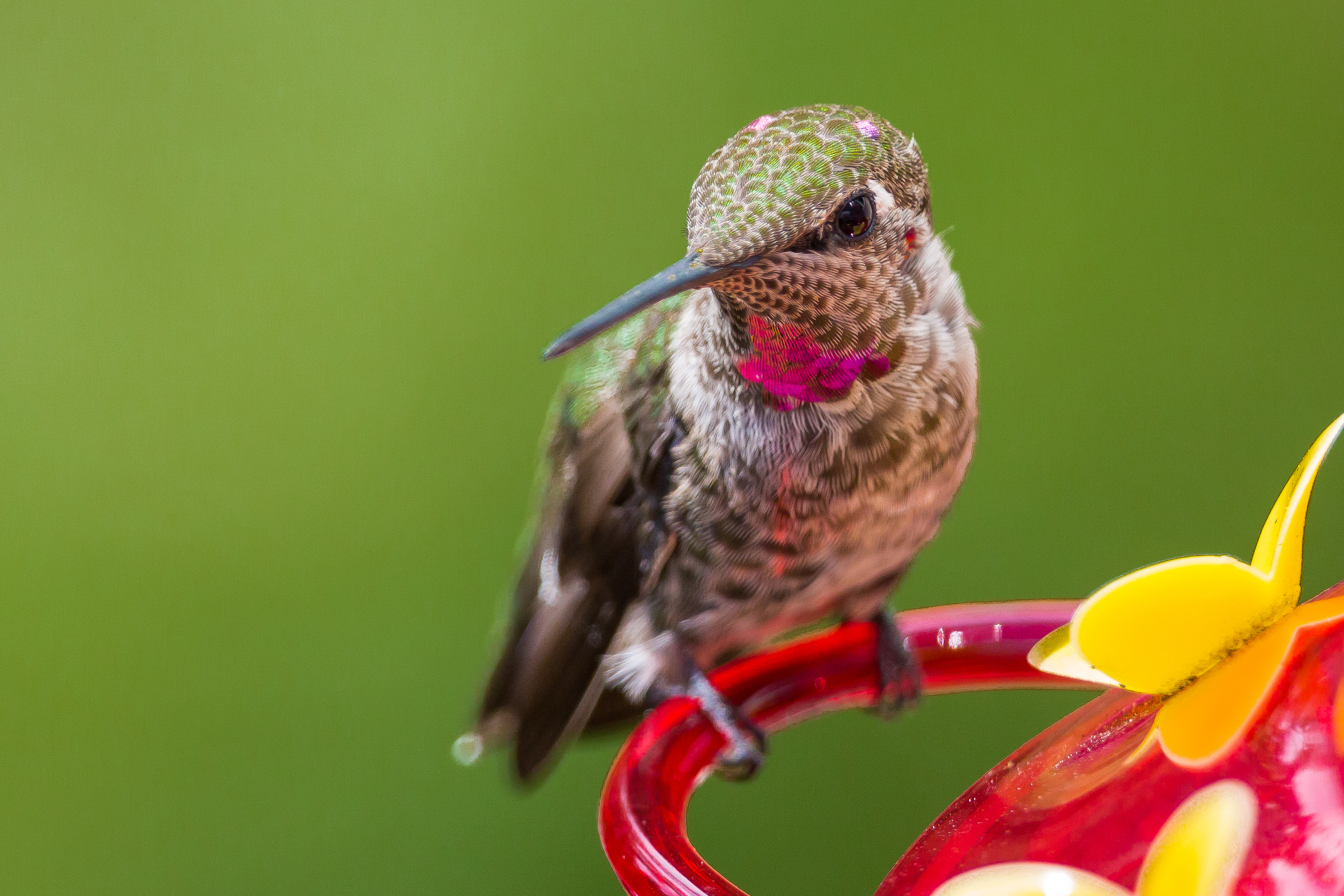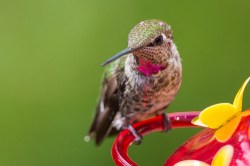Send your question to Umbra!
Q. Dear Umbra,
I feed hummingbirds a syrup made of 1 cup sugar and 4 cups water. I recently read an article about GMO sugar beets in the U.S. And that beet sugar is sold as granulated sugar and not labeled to indicate beet as opposed to cane sugar. So my question is, what effect will GMO beet sugar, if I unknowingly bought and used it for my hummer syrup, have on the birds?
Susan W.
Egremont, Mass.
A. Dearest Susan,
I love that your first thought upon learning that sugar is not labeled transparently is for the birds. That is, for lack of a better word, sweet.
As we began chronicling in the pages of Ye Olde Grist Herald back in 2007, genetically modified sugar beets have been on a stealth march into your pantry (and your hummingbird feeder) for a few years now. Sugar beets themselves, the non-GMO kind, are nothing new: They actually make up more than half the sugar production in this country, with sugar cane comprising the rest. (That’s half the sugar. I’m not talking high-fructose corn syrup, sucralose, verbose, comatose, or any of those other sweeteners.)
Unless your box of sugar says “cane sugar,” it almost certainly contains sugar beets. And since we don’t label genetically modified ingredients in this country (yet), chances are even better it contains GM sugar beets, which now make up at least 95 percent of the country’s sugar-beet crop.
These beets, part of the pest-resistant Roundup Ready line made by our friends at Monsanto, were first approved by the USDA in 1998 and first planted for commercial purposes in the U.S. in 2008. They mostly grow in temperate places like Idaho, Michigan, North Dakota, and Minnesota, as opposed to tropics-loving sugar cane. The last few years have seen quite a hot controversy emerge over GM beets, with a lawsuit, regulatory reviews, and other messy goings-on, but the upshot is: They are here to stay. (If you have a few minutes, I encourage you to read the back story by Tom Laskawy, who explains it much better than your humble advice columnist is equipped to do.)
So are GM sugar beets risky for you and your feathered friends? The answer depends in part on how you feel about genetically modified crops. As they put it so nicely at the Center for Food Safety [PDF], which filed the lawsuit mentioned above, genetic modification “can cause unpredictable, subtle, unknown, and potentially irreversible human and environmental effects.” That builds to quite a crescendo, doesn’t it?
Point is, some people are comfortable with subtle and irreversible effects, others aren’t. Which is why proponents of GMO-labeling laws think we ought to at least be given the courtesy of knowing when we are buying products that contain genetically modified ingredients. Movements for such laws have gained traction in California, Vermont, Connecticut, and Washington, even in Congress, but so far none has taken root. Meanwhile, 64 other countries do have GMO-labeling laws in place. Amer’ca: Some things we are good at, others not so much. (Here are a few tips for avoiding GMOs as you shop.)
You see how deftly I have so far avoided your actual question, Susan? I am like unto a hummingbird, flitting near the delectable nectar of an answer, then darting away just when you have me in your sights.
But yea, I will not dart away. I will tell you two interesting things: First, some people swear that hummingbirds can taste the difference between cane sugar and beet sugar, and that they prefer cane sugar. I don’t know whether that’s true, but I like the idea that their palates are that sophisticated, while we humans have been happily and/or unknowingly slurping down sugar beets for years. Second, and perhaps of more use to you, I checked with the experts at the Cornell Lab of Ornithology, who say GMO beets in hummingbird nectar is not a problem, because the whacked-out genes are not expressed with the sugar (I’m paraphrasing somewhat).
Of course, if you’re feeling cautious (see “subtle, irreversible, etc.” above), there’s a happy and simple solution for now: Buy cane sugar on your next trip to the store. We’ll talk about the emerging field of GM sugarcane and the environmental impacts of sugar production some other day. Maybe.
Dulcetly,
Umbra




